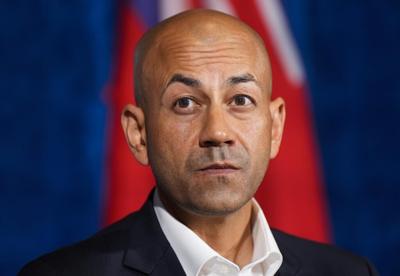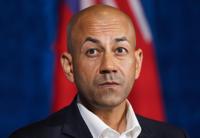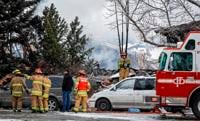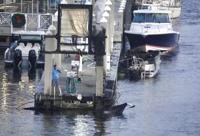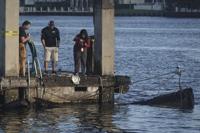WHITEHORSE - Yukon is "patiently waiting" for federal funding that could come this fall to help build critically needed climate-mitigation infrastructure in the wake of recent severe flooding.
Premier Ranj Pillai said ministers from the Yukon and other territories and provinces recently met with the federal government to discuss what the next infrastructure plan should include, given the damage Canada has suffered from floods and wildfires in the last few years.
"Our hope and our sense is that there could be programs in place specifically where we can partner with the Canadian government and do work here in the Yukon, to future-proof some areas," Pillai said.
An ice dam in the Klondike River outside Dawson City caused severe flooding in May, leading to evacuations and more than 80 residents signing up for emergency support services at one point.
Pillai said those residents have now all moved off emergency support, and Yukon is now shifting focus to recovery aid as it launches an $8-million financial-assistance program for the flood's victims.
The program will provide up to $250,000 to residential victims and up to $500,000 for agricultural and small business applicants.
While the Klondike Valley flooding has receded, Pillai said officials are still wary of this year's wildfire risk, especially given the situation across its southern border with British Columbia.
The Donnie Creek wildfire in northeast B.C. is the biggest fire in the province's history, measuring about 5,700 square kilometres in size. In mid-June it threatened the main highway linking British Columbia and the Yukon.
"We have some extremely warm weather, as well, coming our way," Pillai said. "As folks may have heard me say, we've been, on the fire side, lucky so far ãÎ but we are not out of the season yet."
Yukon Community Services Minister Richard Mostyn said the weather forecast calls for some rain over the first half of the long weekend, which will mitigate wildfire risks even with rising temperatures.
Mostyn said the Yukon government has hosted flood experts from Alberta, Saskatchewan and Manitoba to help the territory better manage future floods.
"The territory is now engaged in flood mapping," Mostyn said. " ãÎ And we're going to be prioritizing the information we get from that exercise to actually start to work toward mitigation in the future."
Mostyn said residents should still prepare 72-hour emergency kits, given the persistent risks of either flooding or wildfire that could emerge on short notice this summer.
This report by üСÜꪤüýò¿Øéóæòêü was first published June 30, 2023.

